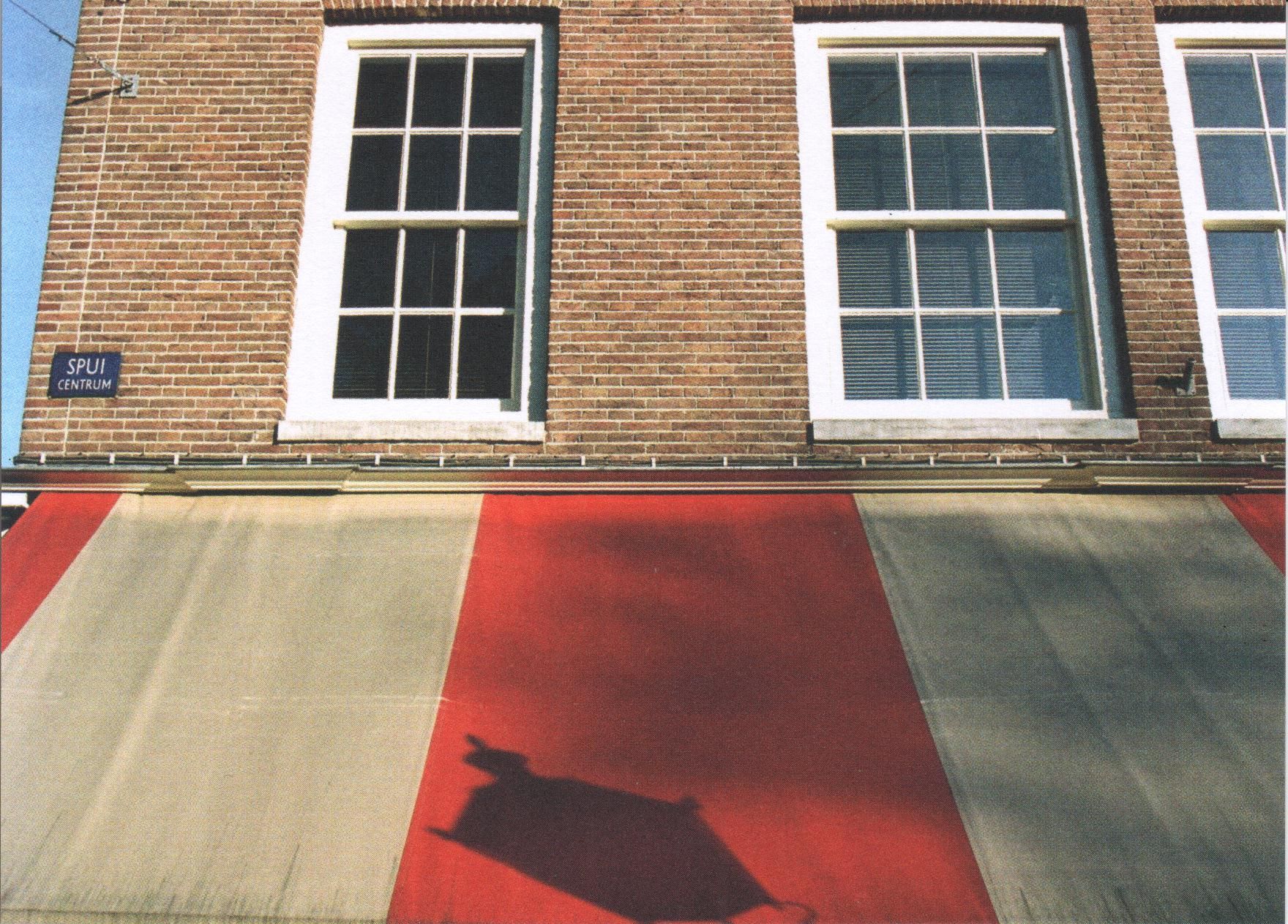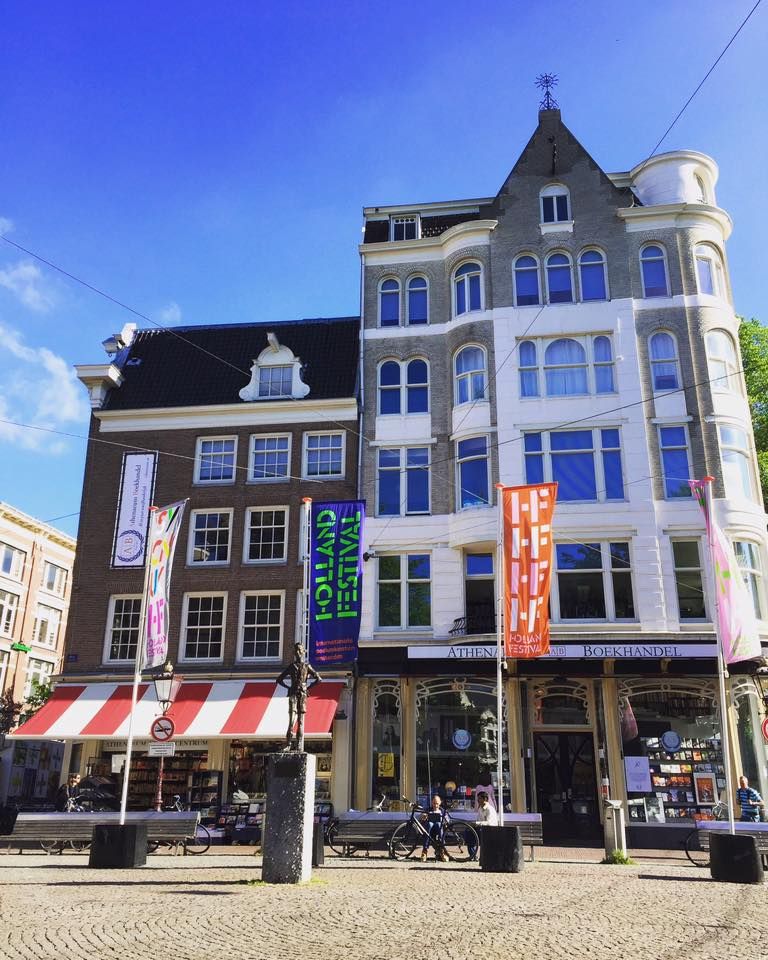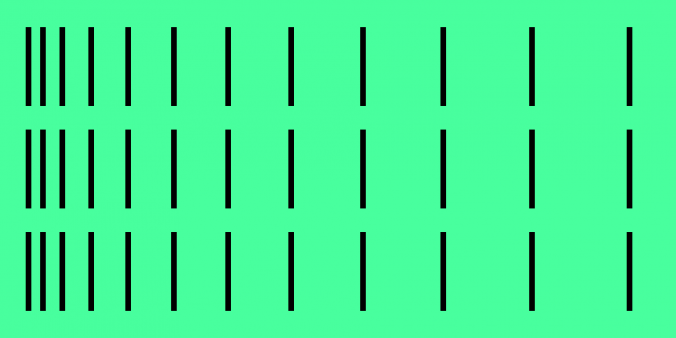French writer Julia Deck on her Amsterdam experience
In August, Julia Deck spent a month in the writers’ residency on the Spui in Amsterdam. Last year her first book, Viviane Élisabeth Fauville (France: Éditions Minuit, 2012), was published in the Netherlands by Vleugels. Due to its Dutch success, Deck is the first of three French writers invited by the Dutch Foundation for Literature to stay in Amsterdam this fall.

Is it necessary for writers to work abroad?
Well, it would be too much to say that it is necessary, but it helps a lot. If you don’t have any new experiences in your life as a writer, then how are your books going to evolve? They’re not going to. New experiences can be travelling or whatever, but for me, the best is to travel with a project, and residencies are ideal for that.
Please, tell us about your experiences with other (international) residencies.
After my first novel was published, I got a grant from the French government to spend one month in Genoa in Italy because my project was related to industrial ports. It was pretty much the same setup as here in Amsterdam: I had an apartment to myself for a month. Later I went to the Villa Marguerite Yourcenar in the North of France, where three writers from three different countries live together for a month. After that I went to Yaddo in upstate New York, where about thirty artists stay at the same time, but it’s not only writers, also visual artists, composers, filmmakers. That was interesting because everybody works in their studio during the day, then in the evening you have dinner together and there are often presentations of the artists’ work. And last year, I went to the Château de Lavigny in Switzerland, which is for writers and translators. I had applied because my new novel Sigma is situated in Switzerland, and I needed to do some research.
What do you gain from being in a residency?
For one thing, you get a lot done because you're not distracted by anything else. But it doesn't necessarily come down to the number of pages you write. Sometimes I write a lot but it turns out those pages aren't so good. What is important is that it gives you a new perspective on your project. It helps put your ideas in place. Sometimes a casual conversation with another writer can be crucial to developing a character. I met people with whom I became very close friends at residencies. It’s funny because you don’t necessarily stay there very long but the connections you make can be quite strong.
How do you prepare yourself for a residency?
The idea for me is not to prepare, unless I have a specific project related to the place where I’m going, as was the case in Switzerland. I suppose it depends on whether I'm at the beginning, in the middle, or at the end of a project. At the start I’m completely open to outside influences, but towards the end I need to be more focused and I just write all the time. When I arrived in Amsterdam, I’d just finished a book, so I was more inclined to just see what happens.
What is your daily structure in the residency here in Amsterdam?
Usually, when I get up in the morning I go directly to the computer, because that’s the time my mind is clearest, so that's when I write, or organise notes, which usually leads to writing. Then I go out early afternoon. In Amsterdam, I cycled a lot because that's obviously the best way to discover the city. That way I empty my mind a little bit, and after having done that for a couple of hours, I sit down at a cafe to have something to eat. That's the moment when ideas start flowing naturally, so I take out my notebook or computer and work some more there.
Is it different from your normal routine?
Oh yes, it's a lot more pleasant! My normal routine consists of sitting at a desk all day. But that's also when I’m at the end of a project. When I’m looking for ideas, I get out as much as I can, even when I'm at home in Paris, I go to see films or exhibitions and try to make connections with the ideas I've got. So that's a pleasant phase too, even at home.
What strikes you here in Amsterdam?
Whether it's actually true or not, I do feel the quality of life is better here than in Paris. The centre of Amsterdam is very crowded but you can get away very quickly on the bike, and then there's everything you need but it’s not overwhelming. I’m very sensitive to architecture. In Paris, the buildings are higher, the streets narrower, and the horizon much more closed. Here I enjoy having the water near and seeing so much sky.
What do you see actually when you look out of the window here?
Well, the apartment has a view to the Spui, which is very crowded, but it's quite high above the cafes, the trams, and everything that is happening there, so I can enjoy it as a spectator, which is what a writer likes most, I suppose. And there is a lot of light, it's a very pleasant place.

How is it different from what you normally see?
For one thing, when I sit at my computer in the residency, I have six windows to look from, whereas in my office in Paris, which I share with quite a few other people, there is one tiny window and I’m not even near it, so I have no view and only artificial light. This is definitely much better. Although I can imagine that in the long run, it could also be a little bit distracting. The upside to having a dark office is that you concentrate on the computer all the time.
What was your previous relation to the Netherlands?
I was in Amsterdam for a few days in 2009. It feels very different here now, and several people have told me that the city has changed a lot in the last few years. More tourists, more crowds, fewer Dutch people can afford to live in the centre. But the first time I was also staying in a very different area, near Oosterpark, so this is all very new to me. Then I was in The Hague in 2016 for the Crossing Borders festival, where I was invited to talk about my book that had just been published in Dutch translation. What I remember most from The Hague is the Mauritshuis, I must say.
What where your expectations of spending time in this residency?
I expected that it was going to be a lot calmer than at home, and I was both looking forward to that and a little nervous because it can be quite strange going from one extreme to the other. Depending on what kind of phase you are going through, being away from home can be great or can cause a lot of anxiety. But the stay in Amsterdam turned out to be very peaceful. Of course, it's very different from residencies where you are staying with other artists, but I met quite a few people connected to the book trade, and it was just the amount of socialising that I needed then.
How does the experience of being in Amsterdam translate in your work?
Unfortunately I can't say too much about that because I'm at the beginning of a project and I'm always very superstitious about telling people about it at this stage. But I can tell you this: I had an idea about something I wanted to work on before I left. However, there was absolutely no structure, and being away has helped me figure that out. Things have sort of naturally fallen into place. They have found an order that seems both clear and manageable. So Amsterdam has really helped me put my ideas together, and I would like the city to appear somewhere in the next novel. In my previous books, there was always one essential chapter that took place in a city other than where the rest of the plot was unfolding. So that could be the Amsterdam chapter!

In 2017-2018, the Foundation for Dutch Literature focuses intensively on promoting Dutch literature in France. Under the title Les Phares du Nord the foundation endeavours to achieve an extensive growth of Dutch translations in French and to make Dutch authors more visible in France. This campaign is part of the cultural season Oh! Pays-Bas. The Dutch counterpart of Les Phares du Nord is L’automne sera français. It provides for an intercultural meeting with French literature in Amsterdam. All three writers staying in the residency are interviewed by literary critic Margot Dijkgraaf at the Athenaeum Spui bookshop: next up is Atiq Rahimi on the 1st of October and for the 19th of November the encounter with Olivier Rolin is scheduled.
Would you like more about the cultural cooperation with France? Contact our advisor Lisa Grob.


